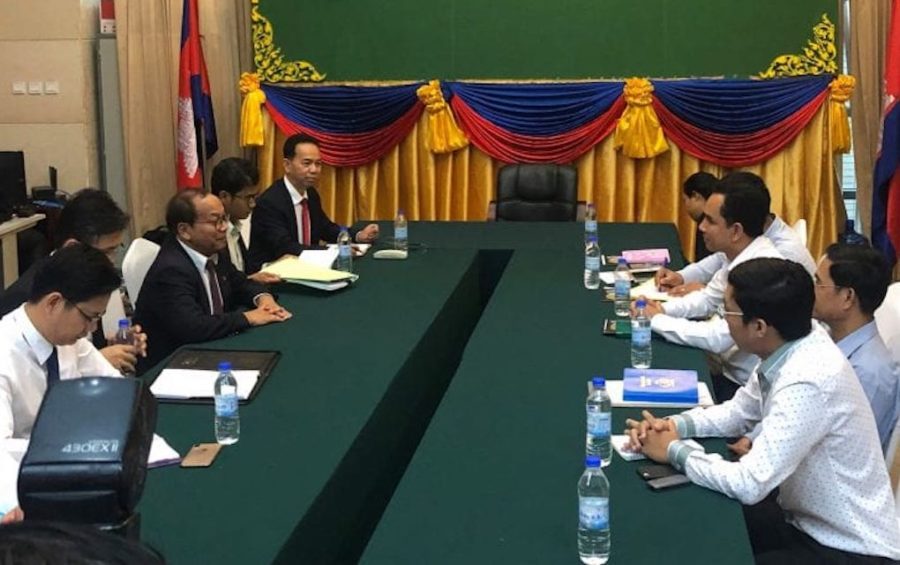A critical report that found “serious and systematic” human rights abuses in the nation’s microfinance sector was inaccurate, could hinder investment in the industry and may be used by opposition groups to politically attack the state, according to a government spokesman.
“That report is a report that you cannot rely on,” spokesman Phay Siphan said on Wednesday, following a meeting with representatives from rights groups Licadho and Sahmakum Teang Tnaut (STT), which released the report last month.
Drawing on 28 case studies of households that “suffered multiple and/or serious human rights abuses as a result of MFI debt,” the report highlights unethical and “predatory” lending practices by microfinance institutions (MFIs), and claims the sector relies on coerced land sales, child labor, debt-driven migration and other rights abuses to thrive.
The report says that Cambodia’s levels of microfinance debt posed a “significant threat” to borrowers’ land holdings, but officials and microfinance industry representatives have said the researchers cherry-picked rare cases of violations and denied there were widespread problems in the sector.
Citing a Khmer saying, Siphan told reporters at the Council of Ministers on Wednesday that “one should not burn a house to cook an egg,” suggesting that the microfinance sector as a whole should not be tarnished.
“The spirit of the joint report” drew its conclusions from 28 case studies and “did not reflect, in general, the operation of providing and accepting loans and a general situation of serious debt,” according to a statement from the government’s spokesperson unit from Wednesday.
Last week, Sok Touch, president of the Royal Academy of Cambodia, also said the research sample of 28 households was not representative of the more than 2 million people who hold microfinance debt in the country.
The report includes a disclaimer stating that the research is “not intended to be statistically representative of Cambodia or of all MFI clients in the country.”
Other researchers of microfinance in Cambodia have said that growing debt levels are unsustainable.
International Finance Corporation, a shareholder in MFI Amret, told VOD last month that there were “legitimate concerns about indebtedness in the microfinance sector,” but the corporation had taken measures to “incorporate responsible finance practices” and “stamp out aggressive lending practices.”
Following the closed-door meeting on Wednesday, Licadho and STT stuck to their report’s conclusions, but said they welcomed useful feedback from the government
Still, Am Sam Ath, Licadho’s monitoring manager, said no changes would be made to the report, which was conducted using proper research methods.
Licadho and STT are neutral, independent organizations and “not hiding a political agenda,” Sam Ath said.
“This report is aiming to clarify the real situation of 28 families who have had their rights abused and we want to make sure this problem will not happen again,” he added.
STT director Soeung Saran said the discussion outlined points of disagreement between the civil society organizations and the government, and aimed to clarify misunderstandings about the aim of the report and avoid confusion from MFI owners.
Saran said the meeting was a “good step” allowing the parties to “come for a talk” and avoid the use of legal measures.
“It is a step in which we help to explain to each other in order to have mutual understanding and avoid a one-sided understanding,” he said.
(Translated and edited from the original article on VOD Khmer)












